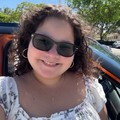Hicks Scholarship Award
Childhood cancer survivors often gain a unique perspective on life, health, and mortality.
A cancer diagnosis is a life-altering event, impacting not only the patient but their families, friends, and caregivers. For many, it can be a challenging, emotional, and transformative journey.
This scholarship aims to recognize and celebrate how a cancer experience can change lives in profound ways. It is a testament to the strength, resilience, and determination of individuals who have faced this disease head-on.
By channeling their profound experiences into a passion, they are able to contribute to society with a different lens.
Any high school senior, undergraduate or graduate student who has been impacted by cancer may apply for this scholarship, but childhood cancer survivors, their siblings or children, and applicants from the Midwest or South are preferred.
To apply for this scholarship, please write an essay detailing your personal background, including your cancer experience and how it has prepared you to pursue your academic and professional goals.
Please tell us about yourself, and discuss how your direct and/or indirect cancer experience has shaped your life and led to your academic and professional goals.
Winners and Finalists
May 2025














Winning Application




Explore All Kinds of Scholarships for All Kinds of Students
FAQ
The application deadline is Apr 12, 2025. Winners will be announced on May 12, 2025.
Your privacy is a top priority on the Bold.org platform, and you can find our privacy policy in full here. You may opt out of communications from Bold.org at any time, and unless we’ve first notified you and gotten your consent, you’ll never receive communication from any third parties related to personal information you give us.
Award amounts per winner are designated by the donor. Check the award amount for a detailed breakdown.
The winner will be publicly announced on May 12, 2025. Prior to the announcement date, we may contact finalists with additional questions about their application. We will work with donors to review all applications according to the scholarship criteria. Winners will be chosen based on the merit of their application.
Award checks will be sent to the financial aid office of the winner's academic institution in their name to be applied to their tuition, and in the name of their institution (depending on the school's requirements). If the award is for a qualified educational non-tuition expense, we will work with the winner directly to distribute the award and make sure it goes towards qualified expenses.
Before we award the scholarship, the winner will be required to confirm their academic enrollment status. Depending on the circumstances, verification of Student ID and/or their most recent transcript will be required.
If you have any questions about this scholarship or the Bold.org platform, just email contact@bold.org and we’ll get back to you as quickly as we can.
Yes. The terms and conditions for this scholarship can be found here.

